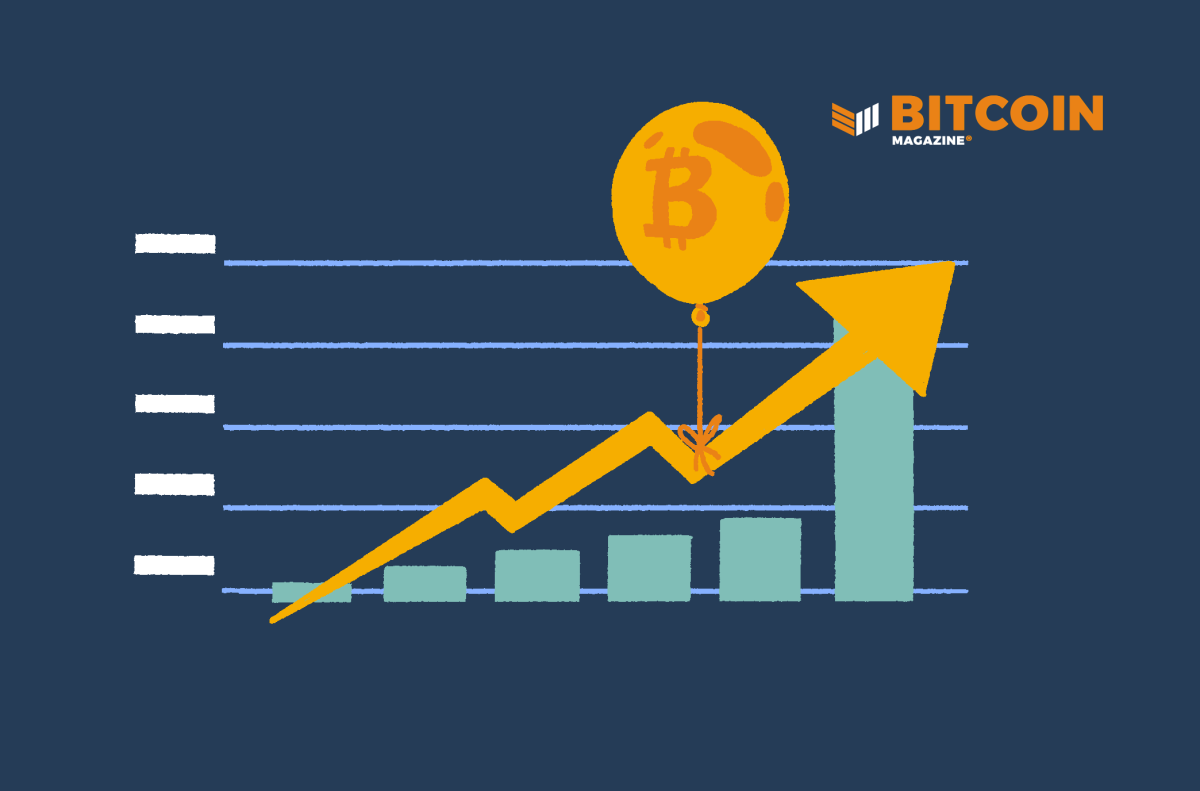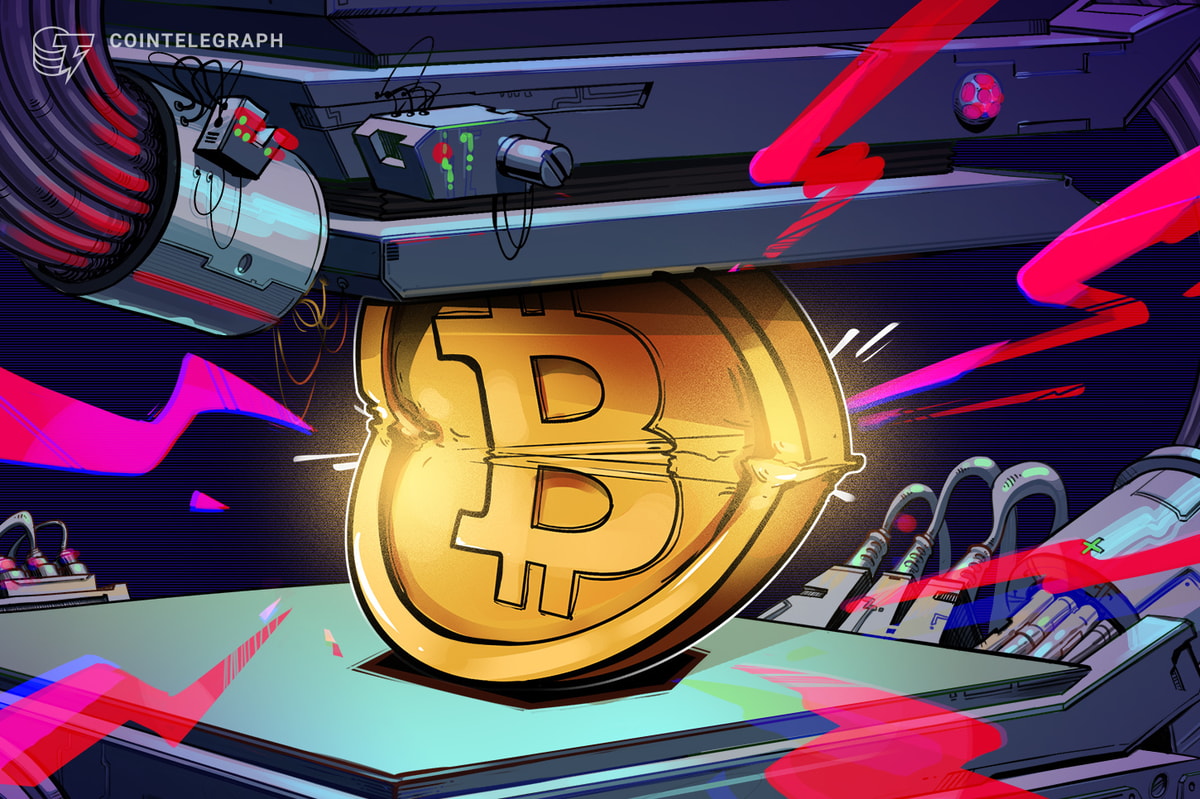This is an opinion editorial by Michael Chapiro, a materials engineer, an aerospace and defense executive and founder of Caliber.
On Wednesday, November 9, in the aftermath of the collapse of FTX, reports began emerging on Twitter of prices for buying bitcoin being quoted and subsequently executed for about $1,000 dollars above the spot market price on Swan and Strike, while the bitcoin price traded primarily in the $16-18k range, a small drop on the order of 10-20% from the prior week before the FTX debacle. One tweet claimed a discrepancy as high as $1,600, though they do not provide a screenshot to confirm. These problems remain ongoing with screenshots showing price discrepancies mostly in the $600-1200 range, indicating spreads in the range of 3.5-7%, well in excess of the highest fees charged by any major exchange even on their fee-boosted consumer interfaces.
It quickly became apparent that the tight correlation in this deviation on Swan and Strike meant that the common backend liquidity provider, Prime Trust, was the ultimate culprit. Prime Trust facilitates bitcoin trading for a number of platforms, the rest of their self-reported 700 clients presumably are all sh*tcoin casinos. Prime Trust highlights crypto.com, OKCoin, Abra, and Bittrex among other flagship customers (though Prime Trust offers a number of services so this does not imply all platforms are necessarily affected).
Many people were quick to identify River and CashApp as two well-known bitcoin-only platforms that do not rely on Prime Trust — however, fewer people were discussing the underlying structural problems that led to this happening in the first place. The logic being: Prime Trust has problems — give me something that meets the criteria of "not Prime Trust" and I will be happy. There is a certain group of people that seem to not learn their lesson and just jump from one thing to the next without understanding the underlying principles, and we call those people sh*tcoiners. So perhaps it would be prudent to figure out why this is happening, and the aspects of why it is happening that actually matter to end users.
The conclusion might end up the same, but unless you actually know how each thing works, you are still trusting a third party based on signaling. It is akin to saying "Well, FTX blew up; guess I'll leave my bitcoin on Coinbase from now on." No, you fool! The problem was leaving "your" bitcoin with a third-party custodian and satisfying the parameter of "not FTX" would do absolutely nothing to solve this problem if you were in that situation.
Before we get into that, let us consider what we might call the four major epochs of sh*tcoinery as follows:
1. Monetary illiteracy — in the first couple years, exceedingly few people saw the big picture for Bitcoin, and many people did not understand the economic forces that made Bitcoin's total absorption of 100% of monetary premium inevitable (note: when I say inevitable, I do not mean complacency is warranted, but that in the 0.1% possible outcome of totalitarianism beating Bitcoin in our lifetimes, that it will always be inevitable that it resurges even if it takes 10,000 years — even if all but 6.15 bitcoin are lost, the UTXO set will not be "reset". Fiat has an absorbing barrier; Bitcoin does not.)
2. "Better than bitcoin," really hit its stride in 2017 as can be observed clearly in the bitcoin dominance chart.
3. "I like bitcoin, but I also like my shitcoin," was the catchphrase of the latest shitcoin wave.
The fourth and seemingly final epoch is, "This is bitcoin…" — but it isn't bitcoin, not if your node doesn't say it is.
Stacks probably comes to mind as the shitcoin platform that takes the "this is bitcoin," grift the furthest with many of the scammers self-identifying on Twitter by appending ".btc" to their Twitter name in the same style as mETH-heads. No serious person falls for this. No serious person leaves bitcoin on exchanges. No serious person does not at least generate their own entropy or use generic hardware if they are not using multi-sig with at least two keys each generated on devices from different vendors. It actually is tautological.
So why would companies be trusted purely because they are perceived as good actors? And to be clear, despite various disagreements I have as to particular methods, I see Strike, Swan, CashApp, River and others as ethical companies run by ethical people who are all working to accelerate the great transition to Bitcoin (I really like a lot of what all these companies are doing! As I write this, I am missing a lot of the second day at Pacific Bitcoin, a great conference being put on by Swan Bitcoin). But that is not enough to appease our scrutiny. I prefer to verify what is going on under the hood, and push for things to get even better. I will not speculate as to whether it might "actually be a good thing" that some KYC platforms run into problems and how that might increase non-KYC bitcoin acquisition. Though it is of course worth pointing out that if you think illiquidity is problematic now in a small dip to the downside, wait until you see what happens when there is a hyperbolic (a literal math term) crash to the upside. Growth in non-KYC infrastructure is paramount, but largely outside the scope of this article.
So where did things go wrong?
First, it is necessary to understand that out of Swan, Strike, CashApp and River, not a single one of these is actually an exchange. Many Bitcoiners will however use the term exchange since the largest platforms where people are buying and selling bitcoin are exchanges. What these entities are is brokerages: in fact, brokerages are the more typical thing for a retail customer to use. If you trade stocks, you are almost certainly using a broker such as Schwab, Fidelity or Robinhood, and these entities will take your orders and route them to an exchange on your behalf. You probably cannot easily place an order to buy a share of some stock directly on the New York Stock Exchange, but you can easily place orders for bitcoin directly on a KYC exchange, or a non-KYC exchange such as Bisq.
Now, there is nothing inherently wrong or necessarily disadvantageous for a retail, or even business customer to use a brokerage rather than an exchange (sidenote: Why the hell are you calling every business that opens a bitcoin exchange or brokerage account an "institution?” That's weird. It emboldens fiat and insinuates that bitcoin is somehow not for every business). Exchanges are often more confusing to navigate, with live data feeds of orders, and people who simply want to acquire or liquidate their bitcoin usually do not need this information. A brokerage might provide a nicer interface, and they could in principle do this with thin margins — but they do not always do that. In large, more mature markets, the fees charged by brokers are razor thin, and even brokers such as Robinhood who came under fire for payment-for-order-flow, where they sell order info before they submit them, are not making that much money off their customers. That is on the order of a single basis point, which is a hundredth of a percent. In bitcoin (and sh*tcoin land), even the exchanges will offer a simplified interface where suddenly the fees jump from tens of basis points to 2-3%.
So brokerages versus exchanges is mostly just a matter of price, convenience and features. There is one critical feature that is not found in any major exchange: being bitcoin only. I find sh*tcoins viscerally unpleasant. I do not like sh*tcoiners in my presence. I do not like to hear about the comings and goings of sh*tcoiners or sh*tcoins (OK, maybe the goings when it is to zero). I certainly do not want sh*tcoin ads in the corner of my screen when I need to buy or spend bitcoin or sh*tcoin ads emailed to me from Kraken, Coinbase or whomever. For friends and family, it is not just unpleasant, but a serious risk, so many Bitcoiners send people they care about to bitcoin-only platforms.
A competing exchange upstart that attempts to be bitcoin only would find itself struggling to match the liquidity depth and trading volumes of sh*tcoin exchanges, so bitcoin-only brokerages actually can be a good solution, but all of the ones that exist today have a fundamental flaw that enabled the current problems facing Prime Trust based services. Enter request-for-quotation (RFQ.) RFQ is the process you go through every time you buy bitcoin through one of these platforms (as well as various other apps, including many outside the U.S.). As a user, you say you want to buy (or sell) a certain amount of bitcoin, and you are given a price. You can take it or leave it, you do not place an order, you swap between bitcoin and dollars at a firm, fixed price. Now, this is exchange in the sense that you are literally exchanging your dollars for bitcoin, which is likely where the incorrect usage of the term "exchange" comes from. On the backend of this process, when you specify the amount of bitcoin you want to purchase, there is an opaque set of over-the-counter (OTC) entities that are given the right to bid for your order.
That is RFQ, and RFQ sucks. What mature markets use is called central limit order books (CLOB), and it is what you get when you use any of the major exchanges. Limit orders are submitted, which is what "makes the market" as opposed to market orders that "take the market.” So what about you, anon? Will you take it, or are you gonna make it? (Jokes aside, as long the order books are not exceedingly thin, there is not that much of a difference between market or limit at spot orders.) The limit orders are a mix of buy and sell offers that have a price specified. The spot price lies in the range of the highest offer to buy bitcoin and the lowest price someone is willing to sell bitcoin. If no one is willing to pay as much as someone is willing to sell for, no trades occur, but if a market order is submitted, it gets one of the edges, and if a limit results in a "negative gap," it also gets an edge. As the spot price moves, orders fill sequentially based on price. The spread refers to the bid-ask spread, and if you look at the spreads on real exchanges, they are usually below 10 basis points, even when markets are volatile.
CLOB is inherently more efficient than RFQ can ever possibly be, which is why it is used. CLOB is a free market and RFQ will always be more expensive, which is why even when Strike was working properly with zero fees, it was not really zero fees because there was a spread that Prime Trust would charge of 30 basis points, exceeding what many exchanges have as fees even after adding in their real spreads. Pretty much everyone ignored this difference in effective fees because it seemed negligible, but the problem with RFQ runs deeper than this. In CLOB, every single market participant can trade with any other market participant on the exchange. RFQ only allows a select set of entities to be on the counterparty side to all the users, and it leads one to ask — which side is the product, and which is the customer? It is reminiscent of traditional infrastructure. Freedom matters. Freedom to participate here means that if you see bitcoin being bought at $17,000 while the spot price is $16,000, you can sell bitcoin at $16,900, but if you checked the sell price on Strike (or if you called in a sell on Swan since they don't have a sell button), you might get a price of $15,000 so you cannot arbitrage. Exchanges allow orders of customers to be matched to the order of any other customer. In free markets, you would in fact come in and do this, but then someone else would come in at $16,800, and so forth, until the massive gap vanished.
Did the OTC parties on the other side of Prime Trust have problems? Were these OTCs shitcoin speculators that blew themselves up in the fallout from FTX? Did Prime Trust blow itself up speculating on shitcoins and now is nefariously trying to recoup cash? Are there a small set of OTCs left that are all colluding on price to prevent arbitrage? I have absolutely no idea, but I also do not care in the slightest. This massive spread and illiquidity that you cannot arbitrage as a customer is only possible due to RFQ. That is all I need to know. If someone loses "their" bitcoin because they left it on an exchange, you might ask how precisely did they get hacked? What was the exact vulnerability, or was it an inside job? But none of those questions really matter. The problem would be leaving coins on an exchange. The particulars are noise.
River and CashApp are operating fine, for now, but are they doing anything fundamentally different? Well, somewhat. Instead of an opaque set of who knows how many OTC counterparties, they are completely transparent: you get exactly one counterparty, which you, dear user, are allowed to trade with — it is them! You are buying and selling directly with them, which is why, for instance, CashApp reported close to a couple billion dollars in quarterly revenue: they literally sell you their bitcoin. Now that is a single point of failure if I have ever seen one. Do I trust CashApp and River more than Prime Trust? Is it possible that their underlying infrastructure is extremely robust, connecting to every major exchange such that they always have as much liquidity as exists in markets globally and would survive perfectly fine if bitcoin were at either $1,000 or $1 million next week? Sure, lots of things are possible. But I do not actually know, and neither do you. Trust cannot be fully eliminated when using services from some company, but transparency can be maximized so that trust can be minimized. River's terms of service claim that they have the right to buy or sell bitcoin from you at whatever price they see fit. They could offer a guarantee to have honest pricing: if global markets actually become illiquid, as will be the case whenever bitcoin goes no-offer from no one wanting to sell, then trading will be halted regardless. Any decent lawyer would be able to provide guidance on how an assurance can be made to the effect of making "best, *reasonable* efforts" that would not be unduly burdensome or risky for the company.
I do not mean to be too hard on Bitcoin companies, but the rest simply do not even merit much discussion and are of course far worse. Prime Trust has about 700 customers, and has raised more than $100 million from VCs. ZeroHash has roughly the same business model, has raised about the same amount of capital, and counts among their customers Interactive Brokers. Coinbase some months ago announced a zero fee trading service with a monthly fee, and zero fee debit card spending with just-in-time selling of bitcoin. In the small print you would find 2% spreads. Fidelity announced they are adding "bitcoin" trading with a 1% spread. NYDIG is facilitating the buying and selling of "bitcoin" in bank accounts with an RFQ model plus an unverified spread. Quotation marks must be used since neither supports deposits or withdrawals for now. Let me be perfectly clear: these companies are blatantly lying to customers when they charge 1% or 2% spreads. These are fees. I do not think companies will come for me. I speak the truth and as an American am free to do so. In fact, in the aftermath of the FTX blowup, I suspect the Consumer Financial Protection Bureau and other agencies may come for them.
And before anyone tries to get clever and says "I thought you Bitcoiners liked free markets?" as sh*tcoiners are fond of replying, let us not forget that every regulation, just like taxation, is enforced at the barrel of the gun. Non-serious people who like to get slick might find they rather dislike the sort of "regulatory forces" they may run into under truly and totally free markets without the buffer of courts and rule of law to protect them from the consequences of their actions.
At the end of the day, there is no such thing as safety with custody. So go with the sketchiest thing you can if it is brief. It is easier to cut yourself with a dull knife than a sharp one, and if the ethical companies are not aligned with those that are the performant ones, beware that by using the ethical company, you may be holding a dull knife. The best option is likely to have more than one at the ready, and to be able to switch at the drop of a hat if need be. This includes knowing how to use various non-KYC channels. We are not even seeing all that much of a price dip now.

Until things get better, sh*tcoin casinos and various non-KYC methods are where I will go for my bitcoin/dollar liquidity needs, and I will continue to feel torn when people ask me where to get bitcoin.
Sound money is about efficiency. Bitcoin is about efficiency. We have mathematical certainty that any civilization's first difficulty-adjusted proof-of-work blockchain is the only way that civilization can operate efficiently, for this provides an information transfer system that has thermodynamically provable minimal information losses. It is a coordination system ("money" or "currency" are terms that are themselves metaphors, which allow for people to misunderstand due to their baggage around those terms, while increasing the attack surface — Bitcoin is just Bitcoin, deal with it, a=a cannot be disputable). Unlike others that use metaphors around energy, I mean this in a literal sense and am also not wrong, but it is beyond the scope of this article. The point is, Bitcoin values things being done correctly. Bitcoin values that the right thing is done. Bitcoin punishes those who do the wrong thing. There is absolutely no moralizing or religiosity to those statements, they are made literally, in a technical sense. The fiat world makes people forget that there are absolute truths. A ball is a surface which has the minimum surface necessary to enclose a certain volume. There is no room for opinion, or for an honest business to venture off into the activity of finding alternative shapes that might have less surface area. We are finished.
Just because the truth is intractable, does not mean it does not exist. All of life, and all that is subjective, exists within that window of intractability that quickly arises in considering more complex problems with a large number of variables, the curse of dimensionality dooming the possibility of ever having absolute certainty about the future. That does not mean we are without the capacity for reason, deduction and intelligent prediction.
I assert that various aspects of what is happening over the past few days and the infrastructure that allowed it is not right.
We shall see if Bitcoin "agrees."
Update:
This article was originally written Friday morning, November 11, 2022, shortly after which spreads normalized on both Strike and Swan.
Strike wrote a thread acknowledging the situation and their commitment to doing right by their users. There were multiple tweets verifying that Strike users were credited "for the inconvenience," as Strike put it, but it is unclear if the credit amounts were equal to the effective losses each user faced, which Strike could easily compute by checking the price history versus prices at which trades executed for Wednesday through Friday until the additional OTC desks were added.
While the crisis was ongoing on November 10, Yan Pritzker, CTO and co-founder of Swan claimed that the prices were true market prices and that complaints were comparable to left-wing politicians asserting that energy companies across the entire United States are mispricing gasoline. This is a flawed comparison as the situation would be closer to a winter storm shutting down a single state that sees a local price surge since other OTC platforms did not see even a fraction of the jumps in spreads.
In addition to not retracting this statement, Swan Bitcoin has been eerily silent on the matter so far aside from mentioning when pricing had normalized. Swan prides itself on serving and providing white-glove support to high net worth individuals. I find it hard to imagine the sort of individual who might smash buy a million dollars and end up with three to four less bitcoin than they would have had buying somewhere else will simply be willing to walk away and accept that as being "normal." As one Bitcoin OG mentioned, it is their turn.
Prime Trust admitted that their RFQ architecture was the fundamental thing that led to this happening (they also wrote a thread explaining how this is completely orthogonal to maintaining 100% reserves in segregated accounts).
Mike Brock, who leads TBD at Block (CashApp's current parent company), and previously was instrumental to developing CashApp's architecture mentioned on November 12 in a Clubhouse room that robustness under volatility had been a top priority for him, and that though it held up this time, "It is possible if all our OTC desks went under ... we would be unable to fulfill orders.”
Conflict of interest disclosure: Michael Chapiro is the CEO and founder of @runCaliber.
This is a guest post by Michael Chapiro. Opinions expressed are entirely their own and do not necessarily reflect those of BTC Inc. or Bitcoin Magazine.











